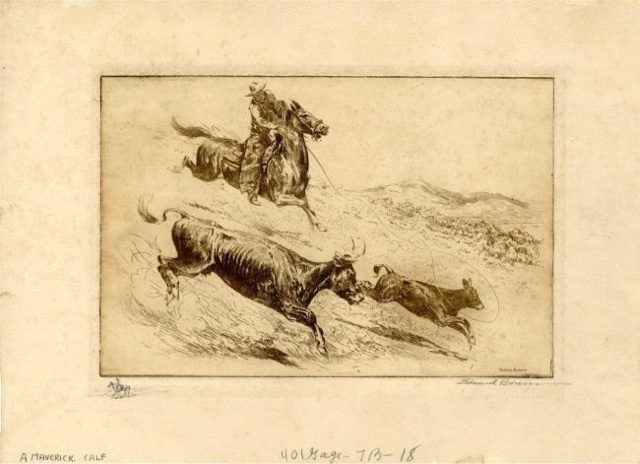The word maverick came into use after samuel maverick a texan refused to brand his cattle

The Maverick Legacy: How the Word “Maverick” was Born

Have you ever wondered where certain words in the English language originated from? They often have fascinating stories behind them, and one such word is “maverick.” While “maverick” is commonly used to describe someone who is independent and unconventional, its roots can be traced back to a Texan rancher named Samuel Maverick.
In the early 19th century, cattle branding was a crucial practice in Texas. Ranchers would brand their cattle by burning a mark into the animal’s hide to signify ownership. However, Samuel Maverick, a lawyer and landowner in Texas, refused to follow this tradition. He believed that branding his cattle was cruel and unnecessary.

Samuel Maverick’s unwillingness to brand his livestock became a topic of discussion among his fellow ranchers. People started referring to unbranded cattle as “Maverick’s” cattle or simply “mavericks.” Over time, the term “maverick” started to be applied to individuals who, like Samuel Maverick, did not conform to societal norms or expectations.
The word eventually gained popularity beyond the realm of Texas ranching and became a part of the English language. It is now widely used to describe people who think and act independently, often challenging the status quo.
The legacy of Samuel Maverick lives on, not only through his refusal to brand his cattle but also through the word “maverick” itself. It serves as a reminder that sometimes it takes daring and nonconformity to carve out a unique path in life.
It is interesting to note how language evolves and how words can have unexpected origins. The story of Samuel Maverick and the birth of the word “maverick” demonstrates that even the most mundane practices, such as cattle branding, can leave a lasting impact on the lexicon.
Next time you hear someone being referred to as a “maverick,” remember the Texan rancher who paved the way for the term’s usage. Let it serve as a testament to the power of individuality and the value of breaking away from herd mentality.
Sources: Texas Escapes
Related Posts
Quick Links
Legal Stuff

